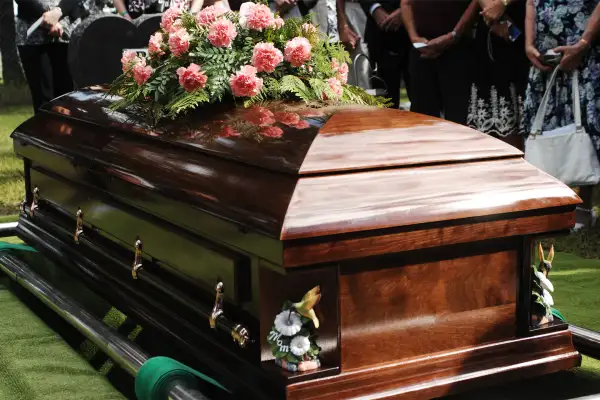FEMA May Cover up to $9,000 in Funeral Costs if You Lost a Loved One to COVID-19

Burying a loved one can be a financial burden in addition to an emotional one. A FEMA program will now reimburse costs for COVID-19-related funerals, back to the beginning of the pandemic. But funerals covered by certain types of life insurance aren’t eligible, and would-be applicants need to be alert to possible scammers, FEMA says.
Applications for COVID-19 Funeral Assistance opened on April 12. The program, funded under the American Rescue Plan Act of 2021, reimburses up to $9,000 per funeral or $35,000 per application -- the latter option being a sad reminder of the families who have paid for multiple funerals related to the pandemic. Those maximum reimbursements are in line with the latest (2019) median costs of a U.S. funeral, according to the National Funeral Directors Association: $5,150 for a viewing and cremation, and $7,640 for a burial (plus another $1,500 or so if a vault is included, which many cemeteries require).
To apply, you must be a U.S. citizen, non-citizen national, or qualified alien who paid for funeral expenses after January 20, 2020, that were caused by, “may have been caused by” or were “likely a result of” COVID-19 or COVID-19-like symptoms, FEMA says. The death must have occurred in the United States, including the U.S. territories, or the District of Columbia.
FEMA says that assistance will be reduced by the amount of financial help received from certain sources to cover funeral costs. Those sources include any other government help (from other federal agencies or state or local authorities, say) and assistance from voluntary agencies that assist with burial expenses. Fundraising for funeral expenses through platforms like Ever Loved or GoFundMe also need to be disclosed, since FEMA requires proof of funds “received from other sources [that were] specifically used for funeral costs.”
Payments and plans that may affect your FEMA claim
Proceeds from “life insurance...are not considered a duplication of Funeral Assistance benefits,” FEMA says, which implies that any such insurance settlement shouldn’t jeopardize receiving federal reimbursement.
However, the agency also stipulates that funds received from “a burial or funeral insurance policy” that helped to cover the cost of final arrangements will be deducted from any FEMA assistance.
These policies, sometimes also known as “senior life insurance” or “final expense insurance,” are actually a kind of whole life insurance specifically designed to cover the cost of funerals. FEMA defines these proceeds as prior funeral assistance, where it doesn’t the benefit from a regular life insurance, even if that was used to pay for the funeral.
You’ll be out of luck, too, if your loved one’s funeral was prepaid. FEMA stipulates that “any source of payment designated specifically to pay for a funeral in anticipation of a future death cannot be reimbursed under this assistance. This includes a pre-paid funeral contract or a prepaid trust for funeral expenses, the agency says.
How and when to apply
Applications can be made only by phone, with calls to 844-684-6333 accepted between 9 am and 9 pm Eastern Time. Once you’re connected to an operator, FEMA says, the call should take about 20 minutes.
FEMA reports it has “controls in place to mitigate fraudulent activity,” and that the agency is not proactively reaching out to would-be applicants. If you are contacted by a purported FEMA or other federal representative, the agency urges you not to disclose information such as the name, birth date, or social security number of any deceased family member.
If you doubt a supposed FEMA representative is legitimate, the agency the agency recommends you hang up and report the interaction to the FEMA Helpline at 800-621-3362 or the National Center for Fraud Hotline at 866-720-5721. Complaints also may be made to local law enforcement agencies.
There is no deadline to apply for assistance, other than the program’s five-year end date. But neither has funding for the program been defined. “Since there is no way to predict how many COVID-related deaths may occur between now and 2025,” FEMA says, “ an exact funding cap has not been established.”
The best time to apply for funds, then, may be as soon as you can assemble the needed documentation. FEMA says the required information is:
- Current contact information for the applicant
- Date of birth for the applicant and the deceased individual
- Location or address where the deceased individual passed away
- Information about burial or funeral insurance policies
- Information about other funeral assistance received, such as donations, grants, and/or assistance from voluntary organizations
- Routing and account number of the applicant’s checking or savings account (for direct deposit, if requested)
The agency warns that call volumes to apply for the program are already high, and you may receive a busy signal and need to try calling again later.
More from Money:
15 Best Life Insurance Companies of April 2021
